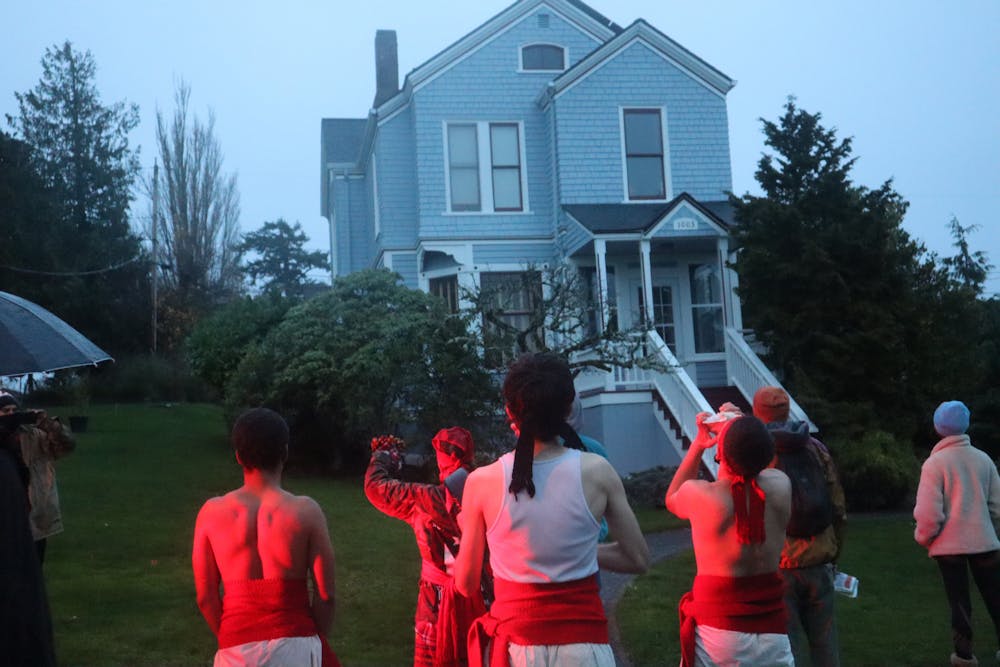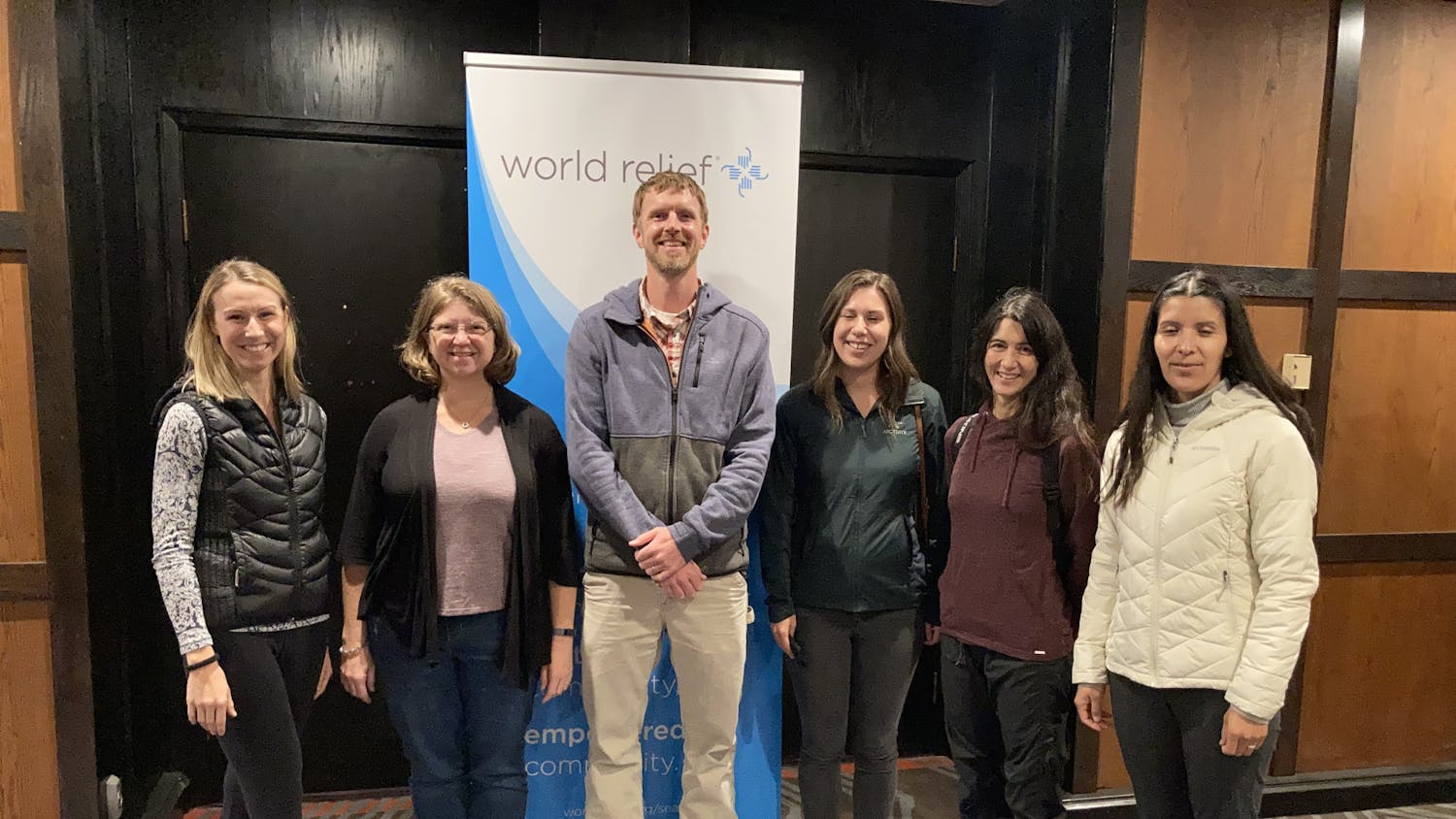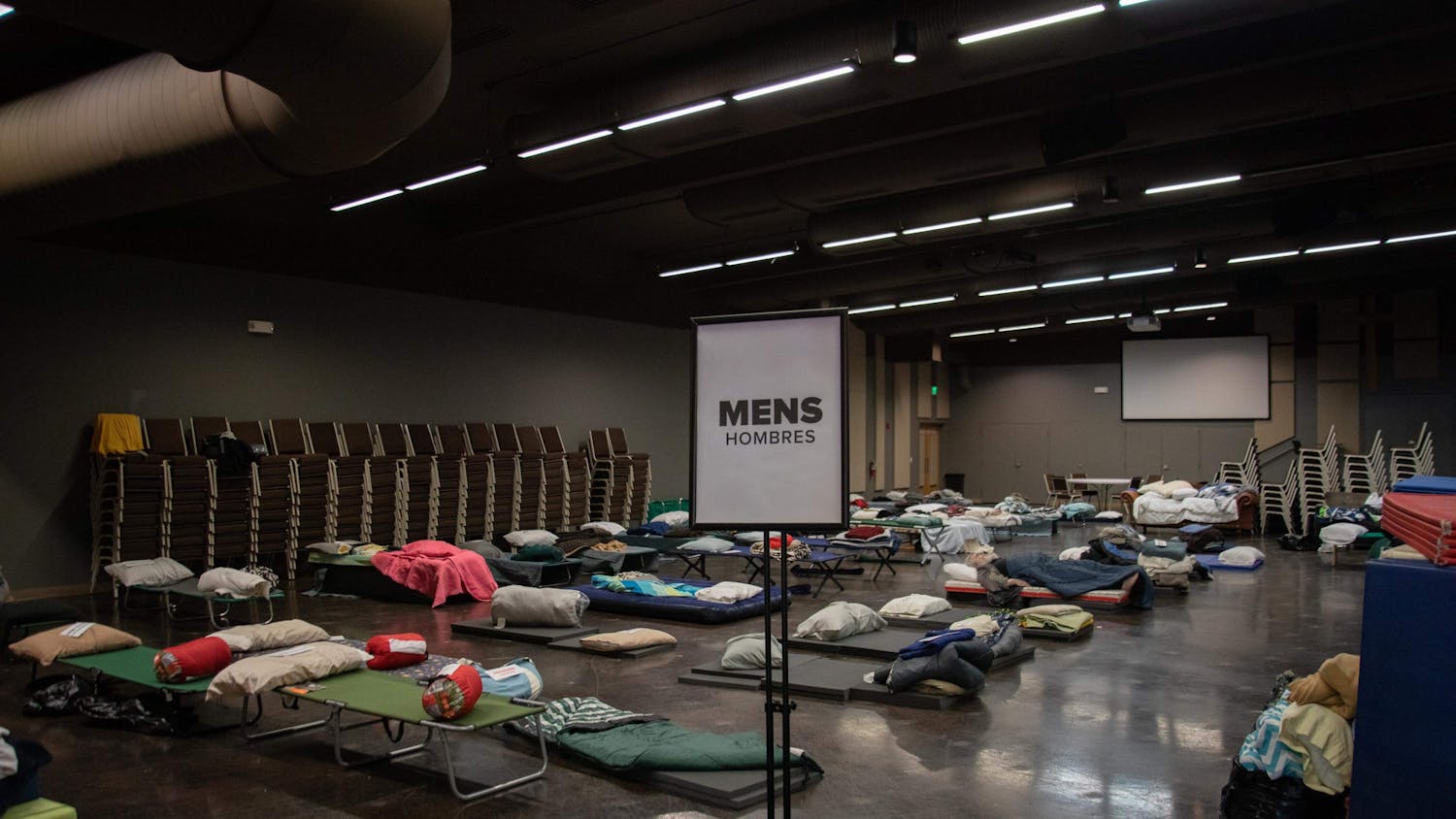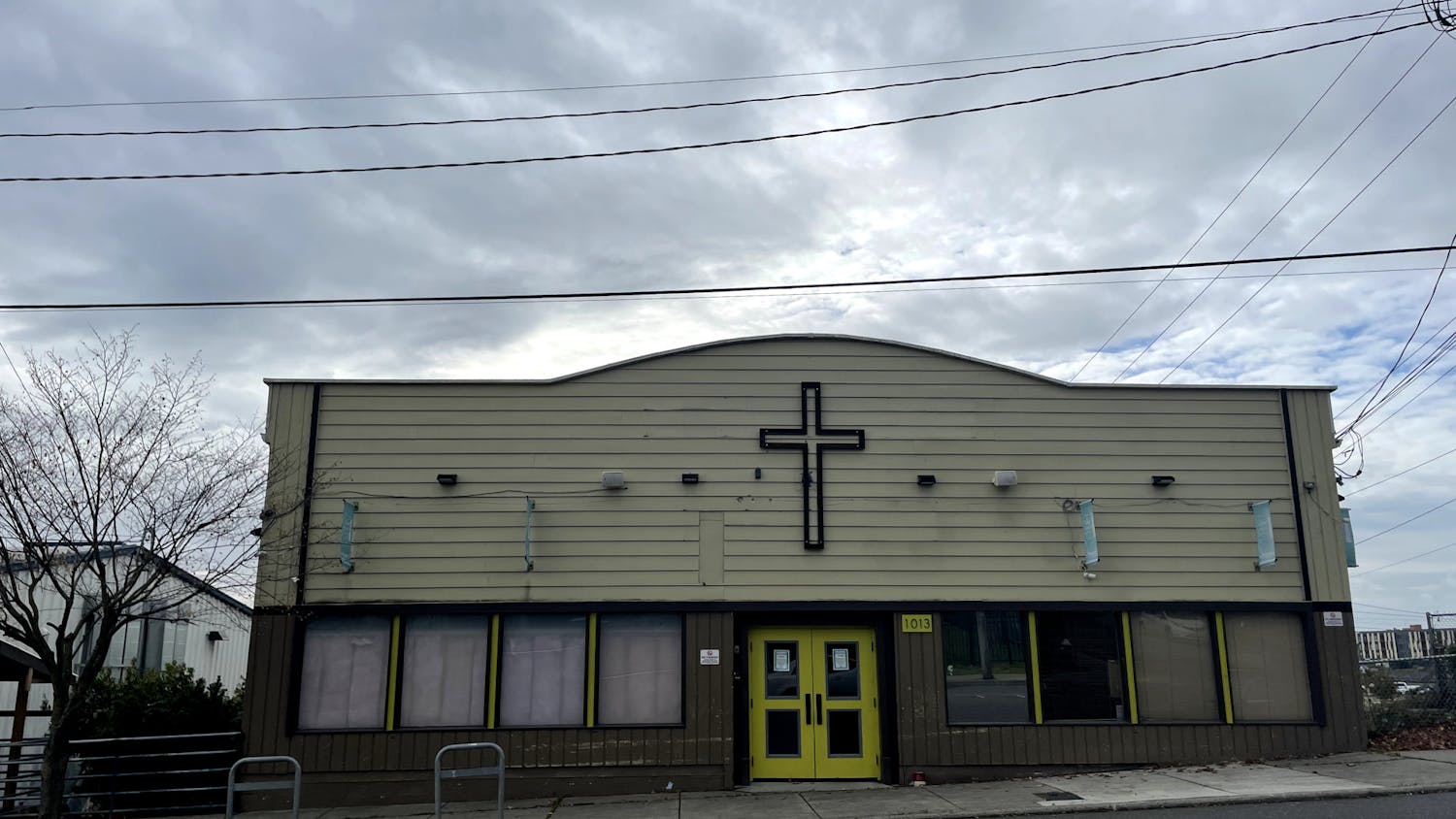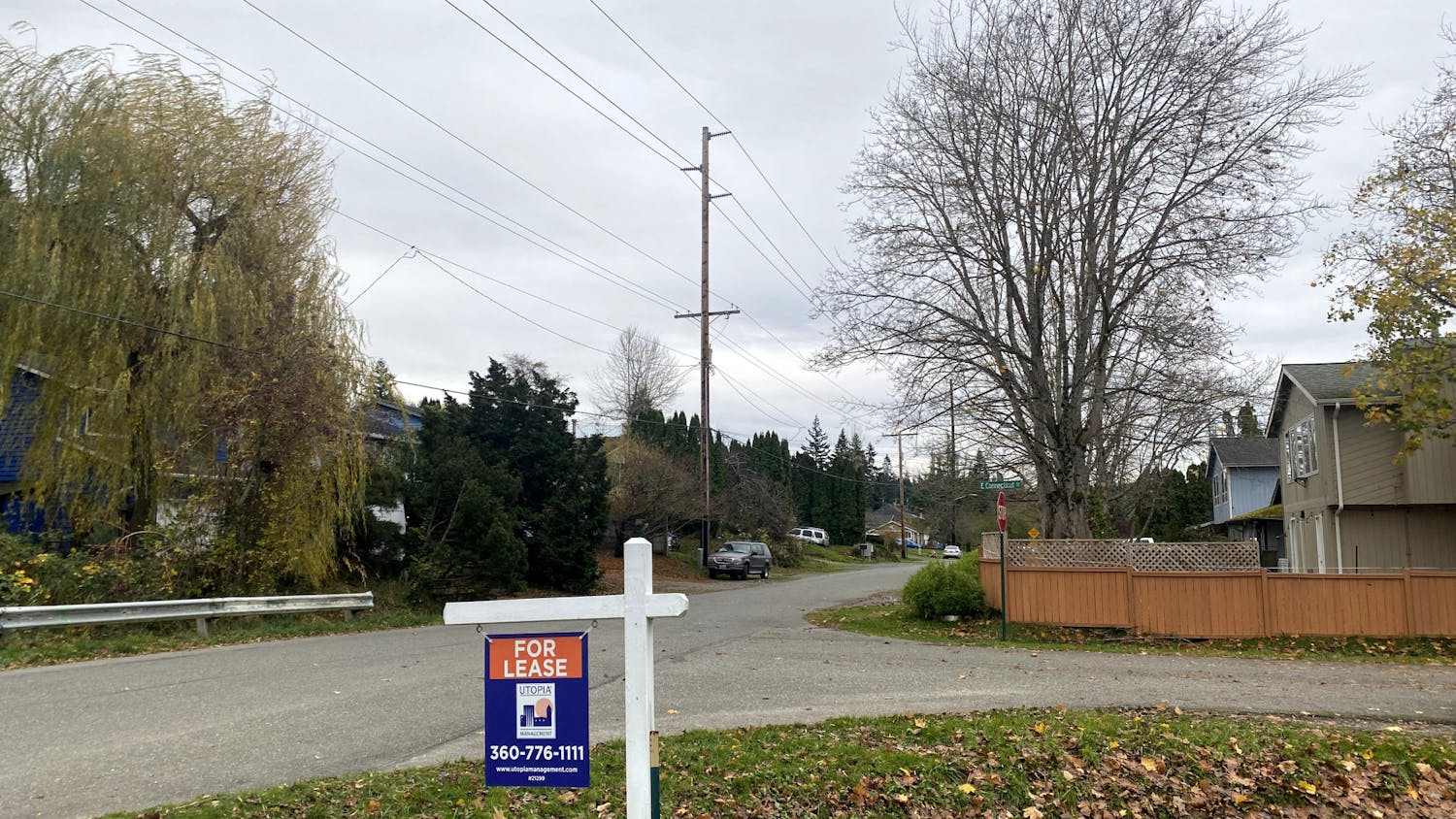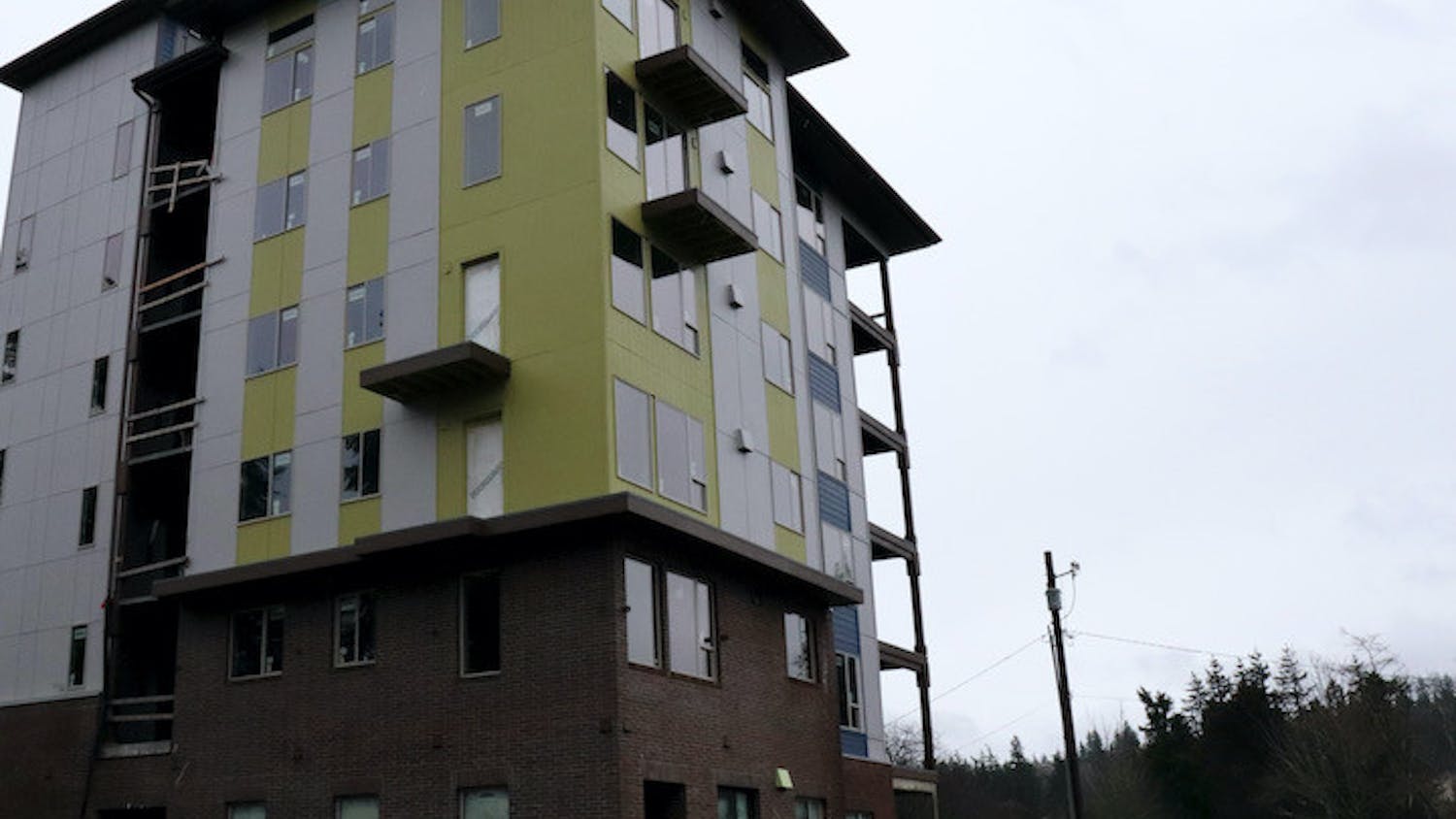Among the colorful reinvention of language and the rain-soaked clothes of attendees, POOR magazine and local Bellingham residents hosted a weekend of events on Nov. 12 and Nov. 13.
They started with a poetry reading at Flo Shala, a local yoga studio, on Nov. 12. Following this, there was a workshop at the Karate Church on Nov. 13, introducing POOR magazine's publication, “The Homefulness Handbook.” The tour ended with a stolen land prayer in South Hill on Nov. 13.
These events were organized to educate citizens of Bellingham about the history of colonization and oppression that continues to exist within Black, Indigenous and people or color and poor communities.
Based in Oakland, California, POOR magazine is a nonprofit grassroots arts organization led by poor and Indigenous people. POOR magazine co-founder, Lisa “Tiny” Gray-Garcia, co-created the Homefulness Project in order to spread awareness about their work to others in the U.S.
According to “The Homefulness Handbook,” “Homeful” means permanent housing for Black, brown, Indigenous and mothering people.
The Homefulness Project is a physical space that the magazine fought against the city of Oakland to receive recognition for the project.
The space includes a garden and a cafe for people experiencing houselessness to find solace. It houses families, provides childcare and hosts a multicultural and a multilingual curriculum for all.
The building permit process is currently in Phase 2 in its journey to adequately provide for the growing community, according to the website. The construction of the project was impacted by fire safety fees which set the project back. The handbook describes the process of constructing as a traditional Indigenous practice but unrecognized by the city as safe.
POOR magazine created the Race, Poverty and Media Justice institute to educate youth in the area.
Throughout the weekend of Nov. 12 and Nov. 13, Gray-Garcia advocated for PeopleSkooL, a recurring seminar hosted on Jan. 29 via Zoom that educates their students in creating access to silenced voices with their non-colonizing, community-based and community-led art and media.
This seminar is a space where anyone can learn about the work of BIPOC and poor people’s leadership, aligning with the self-determining efforts to enhance their formal race, class and/or privilege education.
They started the weekend with a Roofless Radio broadcast, a recorded livestream where they met with people experiencing houselessness in Bellingham. They continued to perform slam poetry at Flow Shala Friday night, Nov. 12. The night was recorded by Aida Cordona and can be found on her Instagram page.
Along with Karate Church owner David Zhang, Cordona helped organize the breakfast at the Karate Church the next morning on Nov. 13. The event intended to raise awareness about “The Homefulness Handbook,” a solution to houselessness written by poor and Indigenous people. The Karate Church also provided a safe space for individuals to share their experiences in order to further the equity campaign.
For their last event, POOR magazine led participants into a stolen land prayer.
POOR magazine initiates tours and workshops to educate people about the violence that disabled, Indigenous and Black communities face in the U.S. From Bellingham, they continue down to Eugene, Oregon, to ignite change in other communities outside of Oakland.
Gray-Garcia leads the workshop with their “herstory” about Oakland. Event was held at the Karate Church with complimentary breakfast for homeless and non-homeless folks. // Video by Julia Kohut
“All the stolen land tours we’ve been doing, which we launched on Mama Earth Day in 2016, wealth hoarders have called the Po’Lice on us,” Gray-Garcia said.
She uses her creative spin on words like “police” and “capitalism” in order to break down colonist language. These words are defined in the glossary in her book “Poverty Scholarship Poor People-Led Theory Art, Words and Tears Across Mama Earth.”
“Linguistic domination happens in all our colonizer languages,” Gray-Garcia said. “Words have power, and remixing the language purposefully takes back our own value.”
For participant Emma Olpinski, the tour was a beautiful way to see change come from the community and to observe the self-autonomy of Bellingham residents.
“Honesty of the wealth that has been hoarded from the past and still currently being hoarded is very salient and important in this community,” Olpinski said. “It’s the beginning of something super important in Bellingham.”
Attendee Kendi Wairimu Kananu finally had answers to questions they were wondering about since they got to Bellingham.
“I’m a student at Western and when I took the tour of the university, I had a lot of questions specifically about when and how the buildings were built,” Wairimu Kananu said. “Those were all the questions that were never answered. As much as researchers ask us to do research projects on where we are at and where we are from, I think it’s a disservice on their part not to teach us about it.”
During the stolen land tour, Gray-Garcia and organizer AuntieFrancis visited two homes in the South Hill neighborhood. One was the house of Bellingham resident Rob Cheesman, who understood and supported Gray-Garcia’s work.
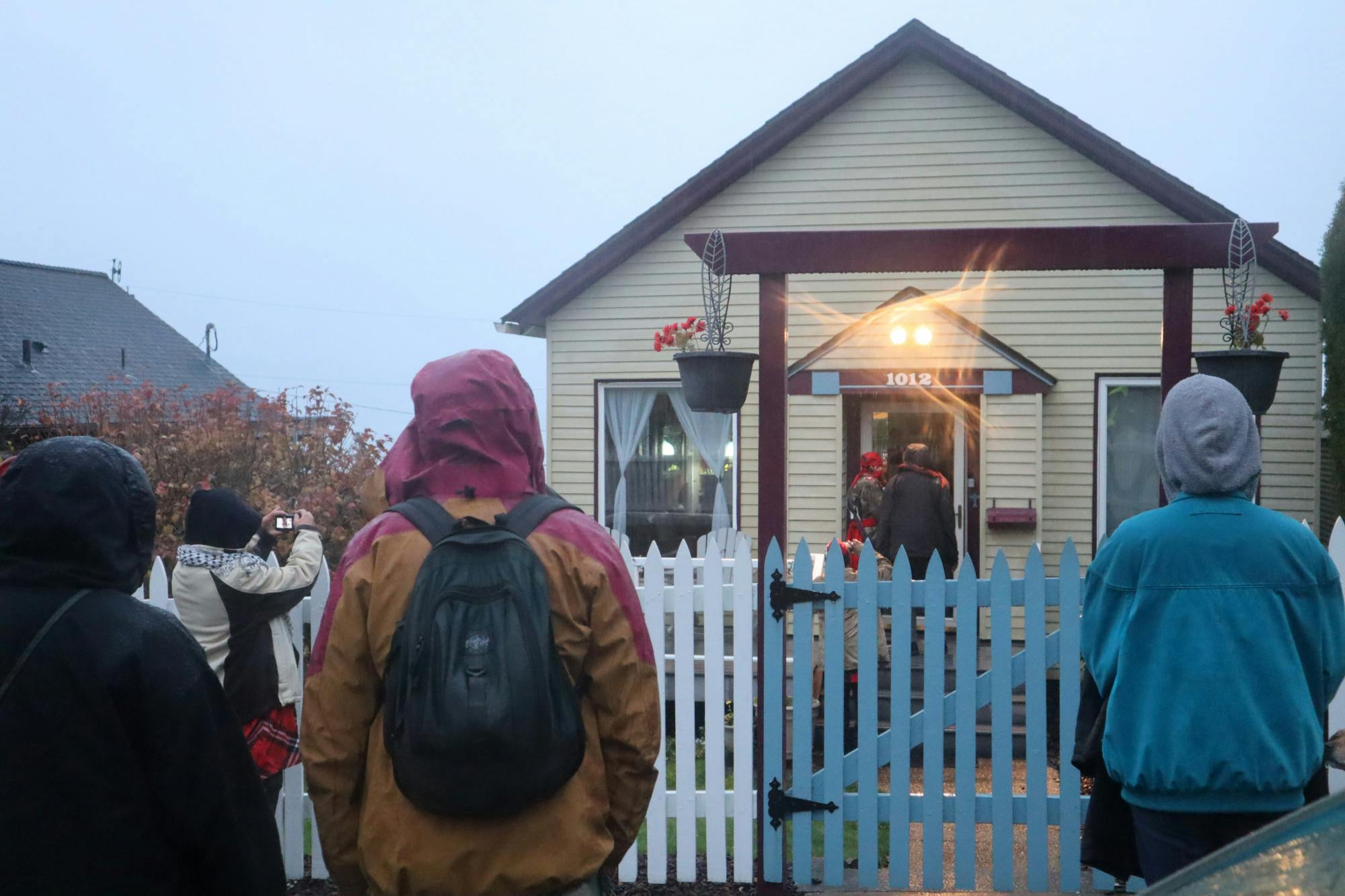
POOR Magazine’s Lisa “Tiny” Gray-Garcia and Auntie Francis visit Bellingham resident Rob Cheesman’s house to talk about issues of houselessness. POOR Magazine visited Bellingham to educate citizens on the Homefulness Project and its role in the houseless community. // Photo by Kai Uyehara
“It sounds like she’s trying to get people off the streets,” Cheesman said. “She’s doing great.”
Down the street, less than a block away, another man called the police on Gray-Garcia. He stated it was an act of vandalism to call his land stolen, indicating she needed to have a permit in order to come up to his home.
“I thought it was kinda cool to see all those people out there.” Cheesman said. He referenced being approached at his home as surprising but not threatening. “Am I being singled out? No, I’m not.” He referred to the tour as a solidarity movement for everyone.
The police never came, even when the group approached the mayor's house. South Hill had numerous walkers and onlookers who were wondering what the group was doing as their drums echoed through South Hill.
“We are never doing anything but spreading medicine,” Gray-Garcia said. “We are incrementally spiritually and physically healing Mama Earth.”
Julia Kohut (she/her) is a senior who is double majoring in Urban Sustainability and a Fairhaven Concentration in Food Security through Community and Food Forests. You can contact her atjuliakohut.thefront@gmail.com


